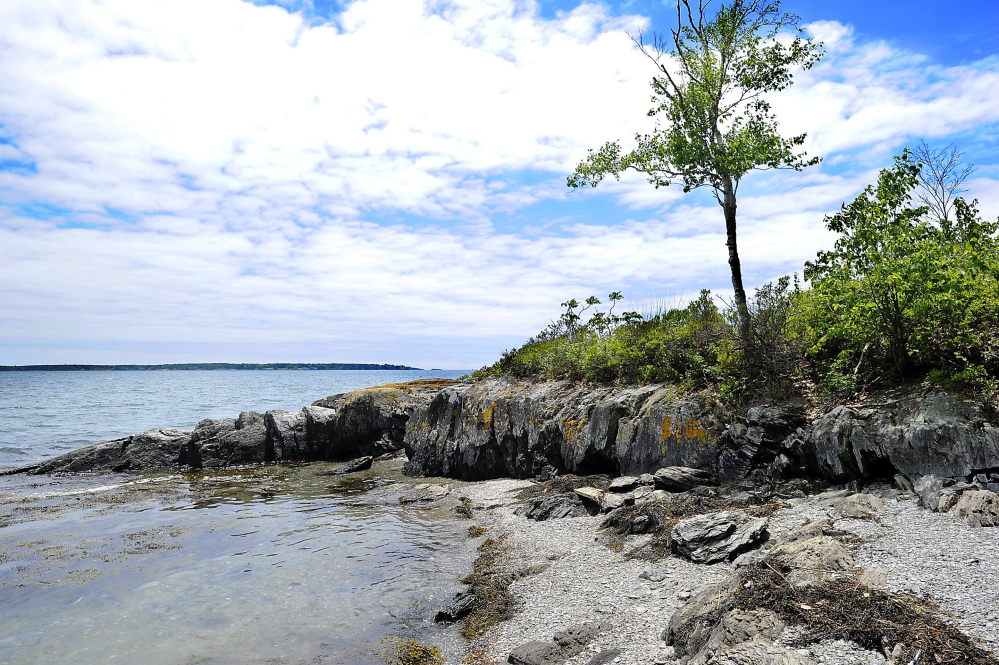AUGUSTA — Members of a land conservation board lashed out Tuesday at Gov. Paul LePage, accusing him of dragging the popular Land for Maine’s Future program into a political dispute and effectively immobilizing it.
After a two-hour meeting that three LePage Cabinet appointees did not attend, some board members wondered if they should challenge the governor’s persistent efforts to hobble the state’s largest conservation program.
“Maybe we should start pushing back,” said LMF board member Ben Emory. “We really haven’t done much to push back against this guy yet.”
LePage has taken a series of increasingly restrictive steps to throttle the agency’s conservation efforts, first by refusing to release $11.5 million in bond money already approved by voters, then by ordering LMF not to use any of the $2 million already appropriated for legal and other expenses associated with existing or future projects. LePage also has frozen an undetermined amount in private donations made to the agency.
The governor is using LMF as a lever to force lawmakers to support his efforts to cut more timber on Maine’s public lands and dedicate the money to a program that would help low-income Mainers with winter heating costs.
ACCESS TO PRIVATE DONATIONS DENIED
Emory’s comments followed a discussion in which board members considered asking the Maine Attorney General’s Office whether LePage has the authority to block access to the $2 million already appropriated and to the private donations.
LMF Director Sarah Demers told the board Tuesday that LePage is blocking its use of private donations. It’s unclear how the governor has done so and how much money would be available, but Demers told reporters after the meeting that she had requested access to the funds and officials within the LePage administration declined to release the money.
The board also discussed ways that it could continue to function amid the governor’s efforts to halt its operations. Tuesday marked the second straight LMF meeting that the governor’s department chiefs did not attend. The absence of commissioners Patrick Keliher of Marine Resources, Chandler Woodcock of Inland Fisheries & Wildlife and Walter E. Whitcomb of Agriculture, Conservation and Forestry left the board without a quorum, unable to take any actions.
Woodcock was in a car accident early Tuesday morning, according to a report in the Sun Journal newspaper in Lewiston. The report said Woodcock wasn’t hurt, but it’s unclear if he went to work.
A spokesman said Whitcomb was attending a conference out of state, and a spokesman for Keliher said he was in Rhode Island to attend a fisheries-related meeting.
The absences came at a crucial time for the land program, which has protected 570,000 acres since 1987. Advocates worry that about 30 conservation projects already approved are in jeopardy because LePage has withheld voter-approved funding for them. The projects include a variety of conservation efforts, such as a riverwalk in urban Biddeford, Clapboard Island in Casco Bay, a bog in Old Town, several farms in southern Maine and water access at Lily Pond on Deer Isle.
The meeting followed a Portland Press Herald report that the governor had frozen $2 million in bond money already disbursed to the LMF.
ONE VOTE COULD BRING SOLUTION
Board members also expressed frustration Tuesday over an ongoing review of the agency by LePage’s Office of Policy Management. Several questioned whether they should continue to meet because they didn’t have a quorum or funding.
Adrienne Bennett, LePage’s spokeswoman, said the governor has been consistent on the LMF controversy. She said the Legislature need only approve his plan to increase the harvesting of timber on public lands to help pay for a home heating program.
The Legislature rejected that proposal in the spring. Several lawmakers cited the governor’s previous vow to release LMF bonds after it approved his bill to pay off the state’s Medicaid debt to Maine hospitals. LePage never fulfilled that promise, despite signing the bill into law.
Neil Piper, an LMF board member who represents the public, said LePage has paralyzed the board.
“I did not realize when I joined this board … that it would be subject to political leverage and even outright disdain by the governor and his staff,” Piper said.
He also questioned the pending review, which is due to be completed by Nov. 1 and is being conducted by Jonathan LaBonte, a member of LePage’s staff. Piper said that evaluating LMF may be a worthy endeavor, but he questioned whether LaBonte’s review would be impartial.
REVIEW OF LMF CALLED A SHAM
Board member James Gorman Jr. was more explicit. At one point he told LaBonte, who attended part of the meeting, that his agency and the LePage administration were preventing the board from functioning or implementing changes to improve the program. Gorman said a review of LMF is important, but the board could not do its current work, much less implement any changes.
“I don’t think keeping us halfway in the dark is going to help maintain the excellence of (LMF),” Gorman told LaBonte.
“You’re doing due diligence, but at some point I hope you begin speaking to us,” he said. “It’s a two-way street. You got to do yours, too. Let’s live up to the commitment that the state wants. It’s the voters that have approved these bonds. I love working on this board … but … I’m pissed off.”
David Trahan, director of the Sportsman’s Alliance of Maine, empathized with the board but urged members to keep meeting. He described LaBonte’s review as a sham process designed to cripple the board.
Trahan, a former legislator who helped develop regulations to review government programs and who also sat on the Government Oversight Committee, said he had never seen an administration use a program review “as a battering ram to impose their political will on a program that they run.”
“That’s what’s going on here today,” he said.
Members of the LMF board are appointed by the governor, and the agency is overseen by the Department of Agriculture, Conservation and Forestry.
Most LMF projects have conserved working forests, farmlands and commercial waterfront property. Funding comes from bonds that must be approved by voters and then released by the governor. The bond money is nearly always supplemented by funds from other sources, including the federal government, municipalities, private corporations, land trusts and individual donors.
POLITICAL REPERCUSSIONS PREDICTED
LePage already has withheld $6.5 million in bonds approved by voters in 2010 and another $5 million approved in 2012. The 2010 bonds have effectively expired and must be reauthorized by the Legislature if they are to be used.
After Tuesday’s meeting, Trahan said he was encouraged that the board was willing to challenge LePage. He said the political battle will have electoral consequences for legislators who don’t support bills designed to limit LePage’s control over the program.
“If this drags out the way I think it’s going to, there are going to be legislators who lose their seats over this,” he said.
Copy the Story LinkSend questions/comments to the editors.




Success. Please wait for the page to reload. If the page does not reload within 5 seconds, please refresh the page.
Enter your email and password to access comments.
Hi, to comment on stories you must . This profile is in addition to your subscription and website login.
Already have a commenting profile? .
Invalid username/password.
Please check your email to confirm and complete your registration.
Only subscribers are eligible to post comments. Please subscribe or login first for digital access. Here’s why.
Use the form below to reset your password. When you've submitted your account email, we will send an email with a reset code.